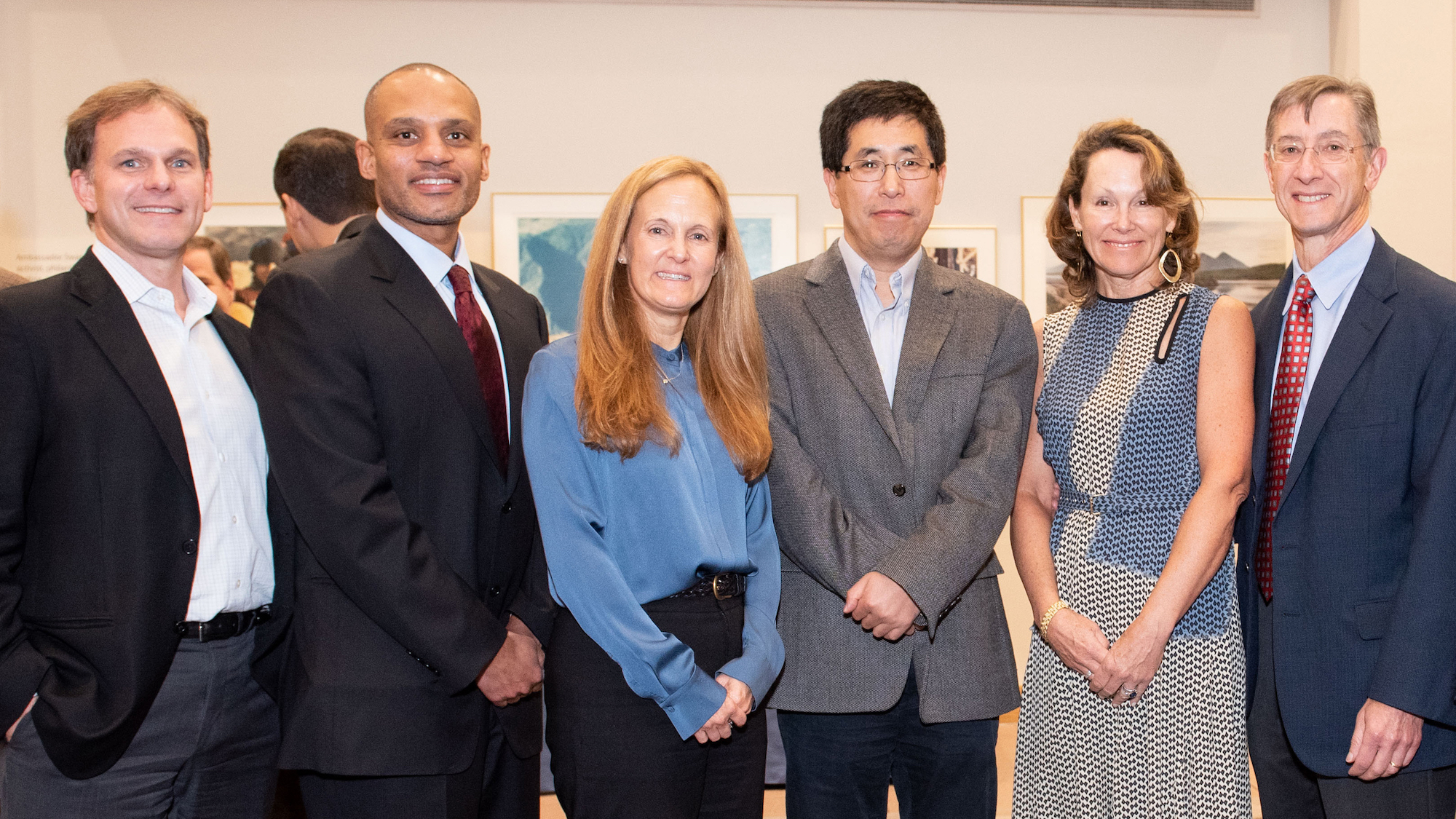
Yi Lu, MD, PhD
Director, Neurological Trauma, Brigham and Women’s Hospital
Assistant Professor of Neurology, Harvard Medical School
Zhigang He, PhD
Research Associate, Boston Children’s Hospital
Professor of Neurology and Ophthalmology, Harvard Medical School
Locomotion recovery after spinal cord injury
While most severe spinal cord injuries still preserve indirect anatomical connections, these connections are functionally inadequate in maintaining locomotion capacity. However, new strategies that maximize the function of preserved neural tissues may provide solutions for patients suffering from devastating spinal cord injury. Lu, He, and their team have identified an important molecular mechanism that is responsible for decreased activity of spared spinal cord interneurons following severe spinal cord injury. They have also identified a small molecule, CLP290, which effectively restores the activity of the spared interneurons, causing paralyzed animals to regain locomotion capacity. The team’s research project will further elucidate the mechanisms of CLP290 in locomotion function restoration, with an ultimate goal of establishing the molecule’s safety and efficacy in human spinal cord injury patients.
Yi Lu, MD, PhD, is the director of neurological trauma at Brigham and Women’s Hospital and assistant professor of neurology at Harvard Medical School. Lu, a complex spine surgeon, is also a dedicated spinal cord injury researcher who collaborates with experts at Boston Children’s Hospital, the Miami Project to Cure Paralysis, and Spaulding Rehabilitation Hospital on finding solutions for patients with severe spinal cord injury. Lu serves as primary investigator of two national, multicenter prospective spinal cord injury trials and as a committee member of the North American Spine Society’s section on spinal cord injury. Lu’s research team is currently working on discovering further mechanisms for axon regeneration and bringing breakthrough discoveries from basic science laboratories to clinical settings with a goal of advancing care for patients suffering from the devastating outcomes of severe spinal cord injury.
Zhigang He, PhD, is a professor of neurology and ophthalmology at Harvard Medical School. His lab at the FM Kirby Neurobiology Center at Boston Children’s Hospital has been studying the mechanisms of axon regeneration and functional recovery after spinal cord injury and other types of injury. He received his PhD from the University of Toronto and was a postdoctoral fellow at the University of California, San Francisco. He has the honor of being named a Klingenstein-Simons Fellow in Neuroscience, a John Merck Scholar, and a McKnight Scholar, and was a recipient of the Ameritec Prize for significant accomplishment toward a cure for paralysis. His group has made numerous key contributions to the mechanisms of axon regeneration and functional restoration, including KCC2-dependent strategies of activating functionally dormant pathways in spinal cord injury models.
